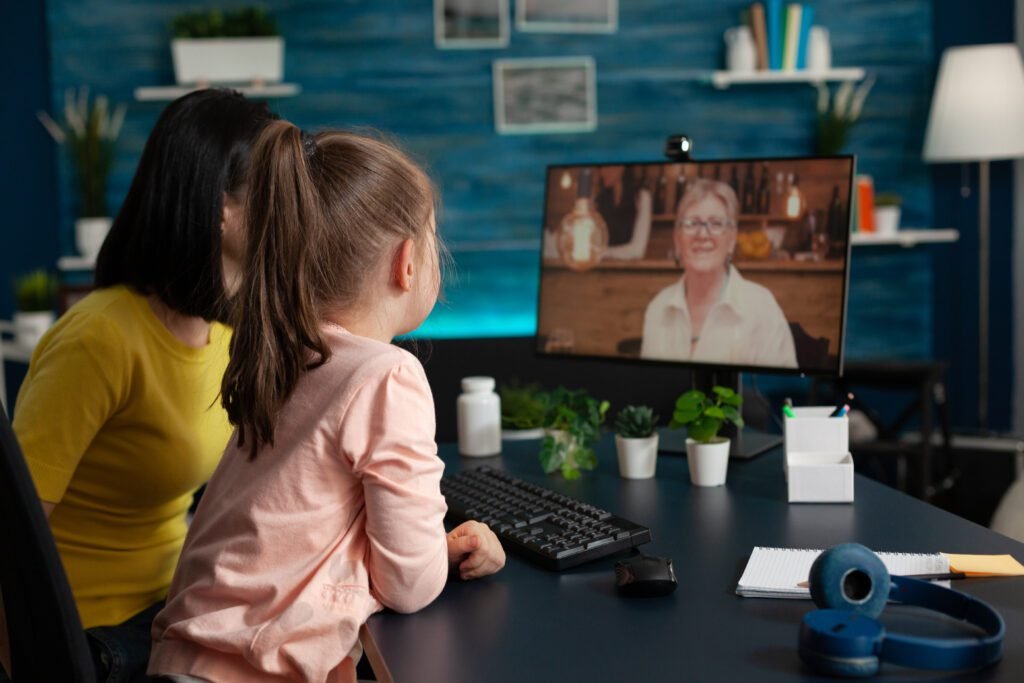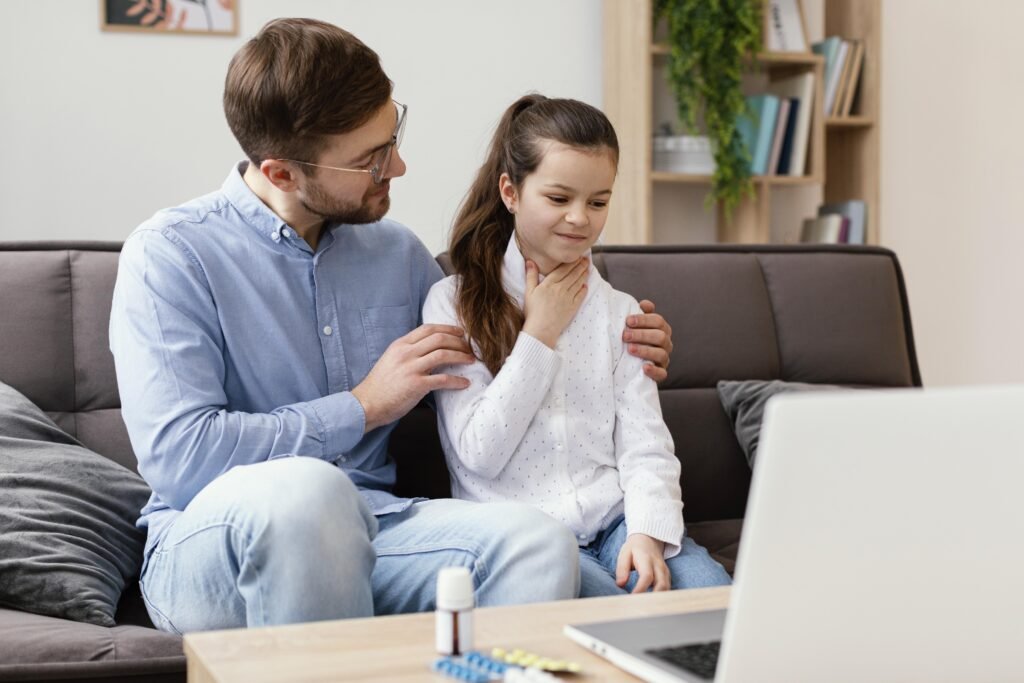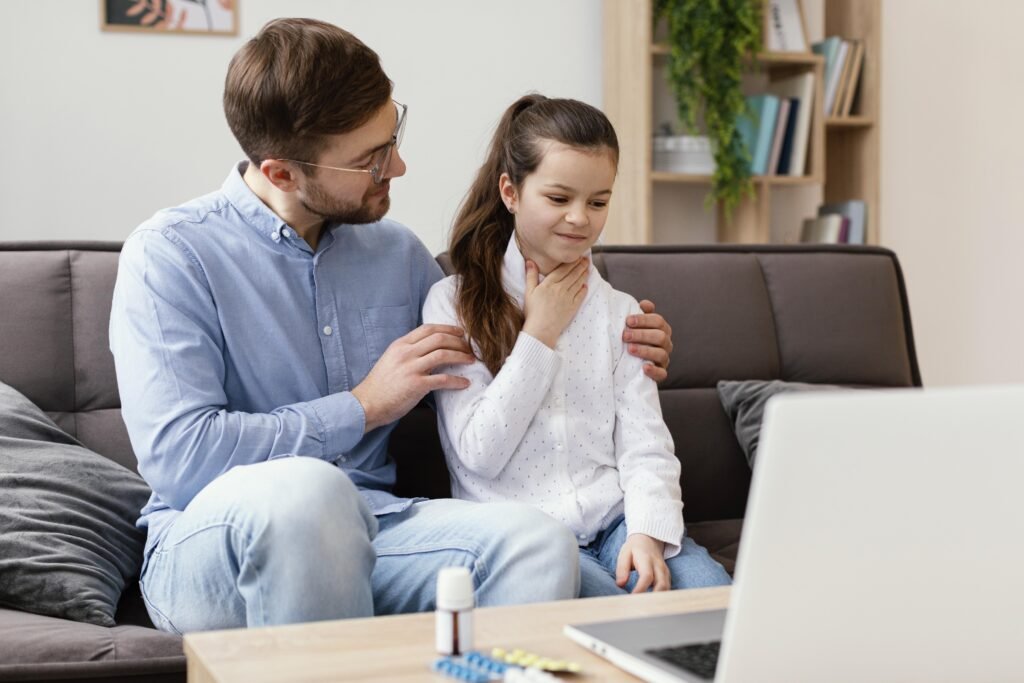Anxiety can affect children in ways that disrupt learning, social connections, and daily routines. Parents often feel unsure about how to respond when fear or worry takes over their child’s thoughts. With the growing use of virtual counseling, families now have access to effective tools that can be practiced at home. These approaches combine professional guidance with everyday strategies, offering both children and caregivers the chance to reduce stress and build resilience.
Understanding Childhood Anxiety
Anxiety in children may look different from what adults experience. Younger kids might complain of stomachaches before school or refuse to sleep alone, while older children may worry constantly about grades or social situations. According to the American Academy of Pediatrics, nearly one in three adolescents will experience an anxiety disorder before adulthood. Recognizing the signs early gives families a chance to intervene before patterns become overwhelming.
Why Virtual Counseling is Effective for Children
Online counseling provides a comfortable environment where children can open up without the pressure of visiting an unfamiliar office. Meeting from home often reduces the nervousness associated with traditional therapy. Virtual sessions also make it easier for parents to participate, giving them tools to apply between appointments. These benefits explain why many families are turning to telehealth as a practical solution for supporting their child’s emotional health.
Building a Supportive Routine at Home
Children thrive on predictability, and structured routines can reduce uncertainty that feeds anxious thoughts. Counselors often recommend setting regular sleep schedules, balanced meals, and daily check-ins where children can talk about their feelings. When routines are consistent, children gain a sense of control, which can lower the intensity of anxiety.
Breathing and Relaxation Exercises
Simple relaxation exercises are a cornerstone of many virtual counseling sessions. Guided breathing techniques, such as counting breaths or using visual imagery, can help children calm their nervous system. Parents can practice alongside their child to reinforce the technique. Over time, these small practices teach children how to manage stressful moments on their own.
Cognitive Behavioral Techniques in Virtual Sessions
Cognitive behavioral therapy (CBT) is widely used in child counseling and adapts well to online platforms. During virtual sessions, therapists help children identify anxious thoughts and replace them with more balanced perspectives. For example, a child worried about failing a test may learn to reframe the thought into recognizing preparation and effort. These exercises help children challenge fear while building confidence in their ability to cope.
Incorporating Play and Creative Activities
Play therapy techniques translate surprisingly well into virtual spaces. Online drawing tools, interactive games, and storytelling exercises allow children to express emotions in ways that feel natural. Counselors often guide parents on how to integrate similar activities into daily life. This combination of play and reflection helps children process feelings that might be difficult to explain through words alone.
The Role of Parents in Virtual Counseling
Parents are an important part of any counseling plan. Virtual platforms make it easier for caregivers to participate in sessions, learn strategies, and reinforce lessons at home. Consistent support from a trusted adult gives children the reassurance they need to practice new skills. Many therapists also provide resources or therapeutic “homework” for families to use between sessions, keeping progress steady.
When to Seek Professional Guidance
Occasional worry is normal for children, but ongoing or intense anxiety may require professional support. If your child avoids school, has frequent physical complaints, or struggles to maintain friendships, reaching out to a licensed counselor is recommended. Virtual therapy provides access to specialists even when local options are limited. Early intervention can prevent anxiety from interfering with long-term development.
Creating a Safe and Open Environment
Children are more likely to share their worries when they feel heard and respected. Listening without judgment, validating emotions, and offering comfort rather than quick fixes helps children feel secure. Virtual counseling reinforces these principles, showing parents how to create a safe space at home where open conversations can take place.
Final Thoughts
Helping a child manage anxiety is a journey that benefits from patience, structure, and professional guidance. Virtual counseling techniques combine evidence-based practices with the convenience of home support. Parents who learn and apply these strategies not only ease their child’s anxiety but also strengthen family connections. By addressing worries early, children gain the tools they need to approach challenges with resilience and confidence.
If you are ready to explore professional support for your family, fill out our new client inquiry form to connect with a counselor who can guide you through the next steps.
Frequently Asked Questions
1. What are common signs of anxiety in children?
Children may complain of stomachaches, avoid school, become irritable, have trouble sleeping, or worry excessively about social or academic situations.
2. How can virtual counseling help ease anxiety in my child?
Virtual counseling connects children with licensed therapists through secure video sessions. It provides coping strategies, emotional support, and parent guidance without leaving home.
3. At what age can children start virtual counseling?
Children as young as seven work with therapists at Amy Brown Counseling, depending on developmental readiness. Counselors adapt techniques for different ages, from play therapy to cognitive behavioral strategies.
4. Can parents be involved in virtual counseling sessions?
Yes. Parents often participate in parts of sessions and receive tools to support their child between appointments. This involvement reinforces progress at home.
5. What techniques do counselors use to ease anxiety in children?
Counselors may use breathing exercises, cognitive behavioral therapy, guided relaxation, play-based activities, and storytelling to help children manage anxious thoughts.
6. Is virtual counseling as effective as in-person therapy?
Research shows online counseling can be just as effective as in-person care when delivered by trained professionals, especially for anxiety in children.
7. How often should my child attend virtual counseling sessions?
Frequency depends on the child’s needs, but weekly sessions are common. Some children may need more intensive support, while others benefit from biweekly check-ins.
8. What role do parents play in easing anxiety outside of sessions?
Parents can create routines, model coping skills, and provide reassurance. Consistent practice of counselor-recommended strategies at home strengthens results.
9. When should I seek professional help for my child’s anxiety?
If anxiety disrupts school attendance, friendships, family routines, or physical health, it is time to contact a licensed counselor for support.
10. How do I get started with virtual counseling for my child?
You can begin by filling out our new client inquiry form to connect with a counselor and schedule an initial session tailored to your child’s needs.



